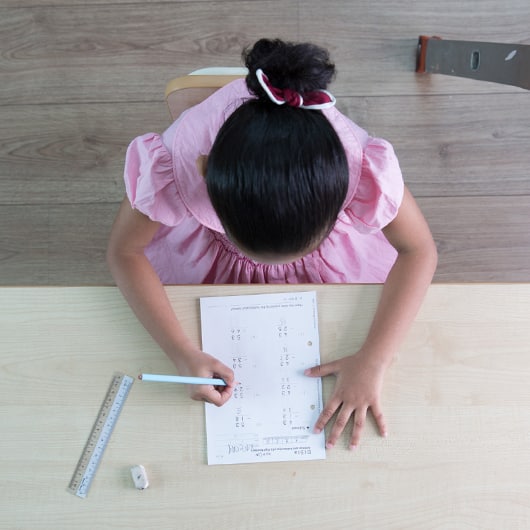What's next?
Interested?
Leave your details here.
Developing Your Children’s Critical Thinking Skills

In today’s fast-changing world, children must be able to do much more than memorise facts. They must be critical thinkers who can analyse, compare, contrast and use this information to draw conclusions. These higher order thinking skills will be a crucial talent many children will require when they are older.
Critical thinking abilities begin with the ability to be curious, adaptive and open-minded. This ability can be developed by daily interactions with your child, such as interacting with them, asking open-ended questions and allowing them to experiment and solve challenges.
Here are some suggestions and ideas to help parents lay the groundwork to develop critical thinking skills in their children.
- Set play time with your children.
Ample free play time at home helps children to learn in an environment unrestricted by any pre-set outcome. Open-ended play provides a wide array of opportunities for them to engage in their own experimentation and learning, promoting the formation of new brain connections. You can also experiment with various puzzle games, such as word games, math games, brainteasers, riddles or IQ-style questions and provide excellent opportunities for your children to train their critical thinking muscles. The entire family can join in as well: building with blocks, acting out roles with each family member or playing board games are all ideas that you can try out with your child.
- Give your children the opportunity to take on responsibilities.
One tactic to get your children to accept their responsibilities is ‘pause and wait’, where they are given enough time to deliberate on their response and ultimately refine it, rather than responding with their first gut reaction. Remember that children require obstacles in order to grow, so parents can wait and observe before attempting to solve an issue for them. Next, allow your children to do their own thing, but also accept their mistakes. Children must experience failure in order to learn how to succeed. As a parent, it may be difficult to see your children making these mistakes, but making mistakes is a necessary precursor to getting up and trying again. After all, mistakes are opportunities for children to think differently and learn from them.
- Always ask them questions.
Always ask your children open-ended questions. Rather than simply providing answers to their questions, encourage them to think deeper and critically by asking them questions in return, like “What suggestions would you like to offer?” or “What do you think is going on here?”. Respect their responses, whether you agree with them or not. Instead of disagreeing, say “That’s interesting. Tell me why you think so”. This way, you can assist your children in developing their own hypotheses too. Taking a moment during playtime to construct hypotheses is a critical thinking practice that helps build skills. Ask your child, “What do you think will happen next if we do this?”. Aside from that, you can encourage new and diverse ways of thinking. Allowing children to think in new ways helps them strengthen their creative problem-solving skills. Questions like “What additional ideas could we try?” or “Let’s think of all the possible answers,” can help your children generate more creative ideas.
To conclude, developing critical thinking in children can be a challenging journey, but it is worth it because it is extremely beneficial to them in multiple ways. Critical thinking skills prepare your children to deal with challenges and barriers, solve complex problems in school, identify how they feel about certain subjects, form relationships and cope with peer pressure. Furthermore, by teaching your children to critically examine the world around them, you are providing them with an advantage that will benefit them academically, professionally and socially for years to come. In the end, your children will not only be able to think for themselves, reach their fullest potentials and purposefully embrace the world they live in.
Sources: https://www.verywellfamily.com/how-to-teach-your-child-to-be-a-critical-thinker-5190765
https://www.brighthorizons.com/family-resources/developing-critical-thinking-skills-in-children

